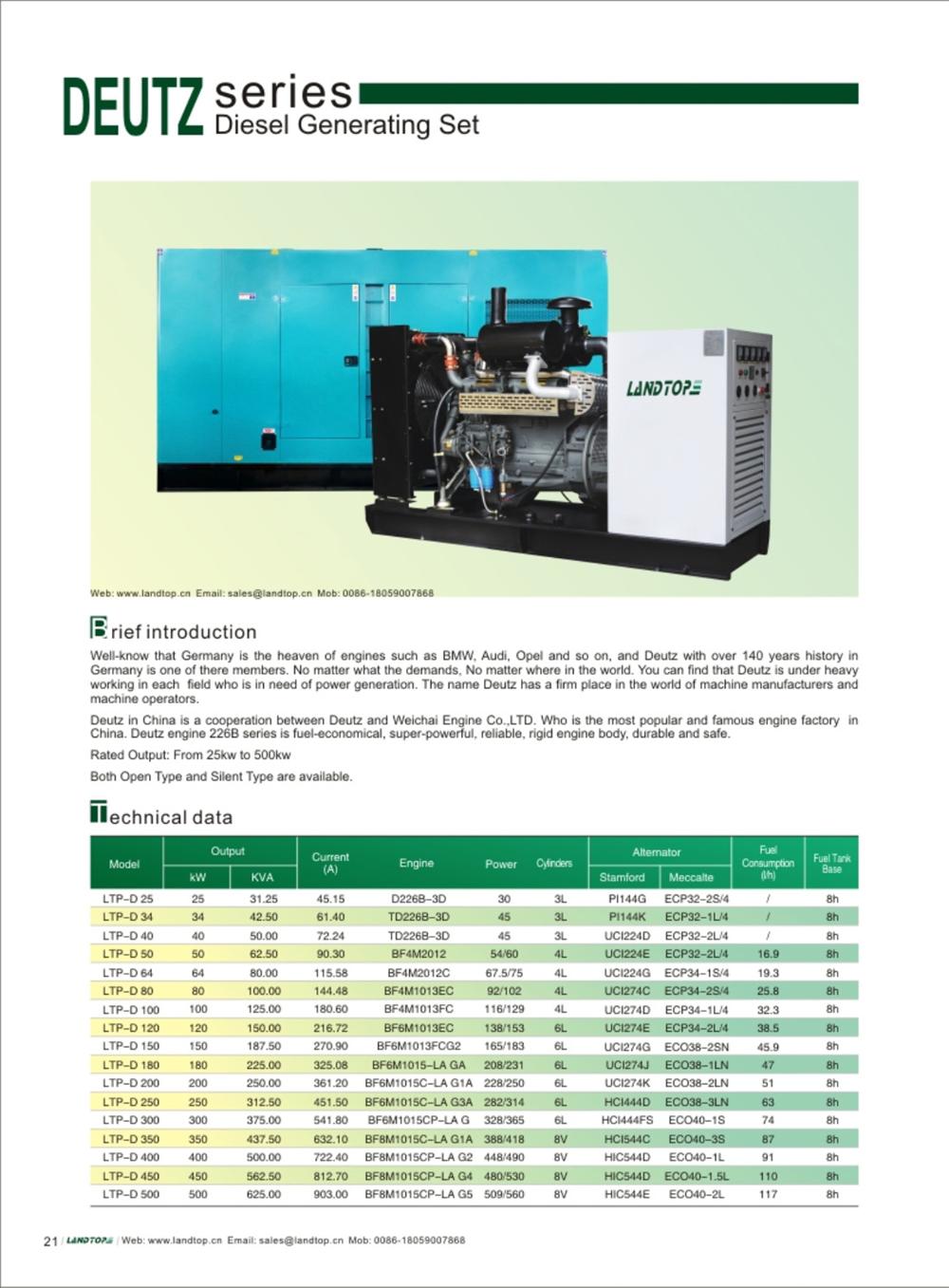Deutz Engine Diesel Generator sets
1.Famous engine&alternator
2.Reliable working
Alternator
Stamford, Leory Somer, Engga, Marathon, Siemens, ST/STC etc.
Rigorous testing
must be done before delivery, including 50%
load, 75%load, 100%load, 110%. And all protection function(over speed stop, high water
temperature, low oil pressure, battery Charging fail, emergency stop)
Warranty
The goods are under warranty against defects in material and workmanship for a period of 12 months or 1000 hours ,whichever come first from the date of delivery to the end user except the damageable spare parts of genset caused by incorrect man-made operation, and that the aforementioned warranty for the same taken is back up by the engine and alternator suppliers.

Deutz Engine Diesel Generator
Deutz Engine Diesel Generator,Deutz Diesel Generator,Deutz Diesel Power,Deutz Generator Set
FUZHOU LANDTOP CO., LTD , https://www.landtopco.com
